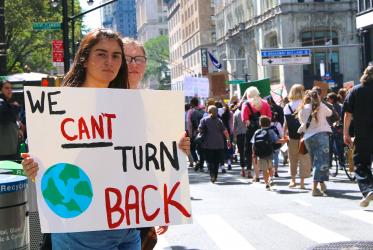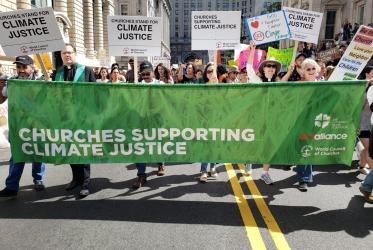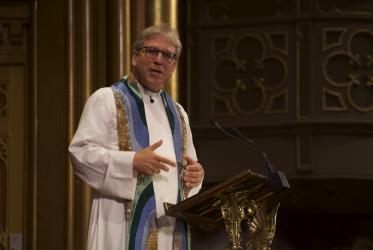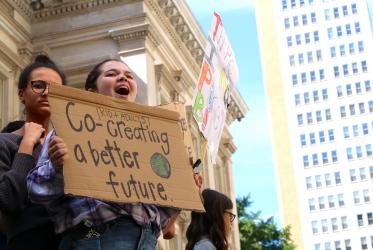Displaying 21 - 40 of 66
26 February 2020
WCC well-represented in Religions for Peace leadership
07 October 2019
American and Swedish church leaders sign joint climate justice pledge
26 September 2019
Climate emergency: faith-based groups pledge to amplify prophetic voice
25 September 2019
As Climate Summit begins, churches call for action now!
23 September 2019
“Do you love me?” It’s a question about global warming
22 September 2019
WCC joins global climate strike with throngs of young people
21 September 2019
WCC supports Zacchaeus campaign for tax justice
12 July 2019
Taxation and reparations – tools for promoting equity, climate justice and an economy of life
11 July 2019
Church Center for the United Nations, New York
WCC remembers lost colleagues
24 May 2019
Responsible agriculture investments theme of WCC session
16 October 2017
Emily Welty: tide of hope for a world free from nuclear weapons
19 September 2017
G20 summit: call to pray for peace in Hamburg
07 July 2017
G7 must address famine
22 May 2017
Standing Rock decision ”Gospel news” for indigenous communities
08 December 2016















